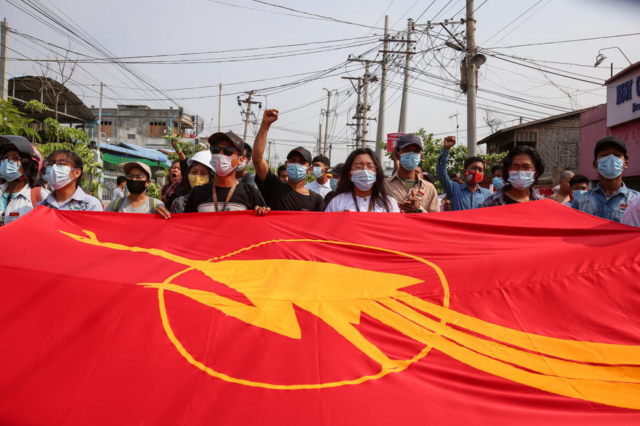International coalition of Parliamentarians launches Inquiry into global response to Myanmar coup


JAKARTA – Despite pledges to oppose the overthrow of the democratically elected government of Myanmar and hold the country’s abusive military to account, international actors have failed to take the necessary steps to force the junta to negotiate a political solution, failed to address the mounting humanitarian needs, and failed to bring about the necessary diplomatic coordination to prevent Myanmar from becoming a failed state, a newly established international parliamentary inquiry said today.
The International Parliamentary Inquiry into the International Response to the Coup in Myanmar (IPI), chaired by Heidi Hautala, Vice-President of the European Parliament, brings together members of parliaments from Asia, Europe, Africa and the Americas to investigate the international response to the crisis triggered by the coup d’état in Myanmar and where it is failing. The members of the committee form a truly international panel that has come together because of their common concern to protect the rights of the most vulnerable.
“The response to the devastating crisis unfolding in Myanmar is going nowhere fast,” said Hautala. “As parliamentarians, we know that governments and international institutions can, and must, do more to end the current impasse. These hearings aim to shed light on where the response is falling short, and to provide information on the next steps that can be taken to put effective pressure on the Myanmar junta.”
The IPI is an initiative of ASEAN Parliamentarians for Human Rights (APHR). It will follow the format of tried-and-tested parliamentary inquiries conducted at a national level. In addition to requesting information from individual governments and international organizations, the IPI will accept both written and oral submissions of testimony and evidence from a variety of stakeholders.
“We are concerned that international institutions have not lived up to their own promises, and we are appalled that the situation in Myanmar is worsening the longer the international inertia continues,” said Charles Santiago, Chair of APHR. “We, as parliamentarians from all over the world united by a common purpose, will approach this inquiry unhindered by the type of geopolitical considerations that have resulted in the current deadlock.”
The violence, death, and suffering being caused as a result of the Myanmar coup continues to escalate and intensify in the absence of adequate international efforts to alleviate the suffering of the Myanmar people. In January, the U.N. High Commissioner on Human Rights Michelle Bachelet, stated that the international response had been “ineffectual and lacks a sense of urgency commensurate to the magnitude of the crisis.”
“The Burmese people have clearly and courageously demonstrated their aspiration for democracy”, stated Congresswoman Ilhan Omar, who will be participating from the United States. “They do not want a military government. The United States must stand unequivocally with those advocating for a Burmese democracy rooted in human rights and equality. We must also support the human rights of religious and political minorities, including Rohingya who have already suffered so much, and indeed all those facing oppression.”
The Committee is to gather evidence by sending requests for information to key agencies/institutions, opening a call for written submissions, and conducting public hearings in June and July.
The Committee welcomes evidence on the following points:
- How can international actors improve their response to the crisis in Myanmar?
- How can, and how should, governments engage and support the democratic opposition, civil society, and ethnic organizations?
- What has the UN contributed to resolve this crisis so far? What else can be done given the impasse at the U.N. Security Council (UNSC)?
- What has ASEAN contributed so far in resolving this crisis? What else can be done?
- What alternative mechanisms or actions could be considered to influence the situation in Myanmar?
- How can international actors, including governments, support justice for victims and provide redress for the junta’s crimes?
- To what extent is humanitarian aid reaching the people in need in Myanmar? What can be done to ensure effective delivery of aid?
- What protection is being given and what is lacking for Myanmar refugees?
- What may have triggered the coup? How did international actors contribute to the environment and situation in Myanmar that eventually resulted in the coup?
The Committee members of the IPI are:
- Mercy Barends (Indonesia)
- Taufik Basari (Indonesia)
- Amadou Camara (Gambia)
- Heidi Hautala (Chair) (European Parliament)
- Nqabayomzi Kwankwa (South Africa)
- Ilhan Ohmar (USA)
- Nitipon Piwmow (Thailand)
- Charles Santiago (Malaysia)
Click here to read our Media Advisory on the IPI.
For further information, contact Nicholas Bequelin at [email protected]
For updates follow us on social media with the hashtag #MPs4Myanmar and check our website www.aseanmp.org

